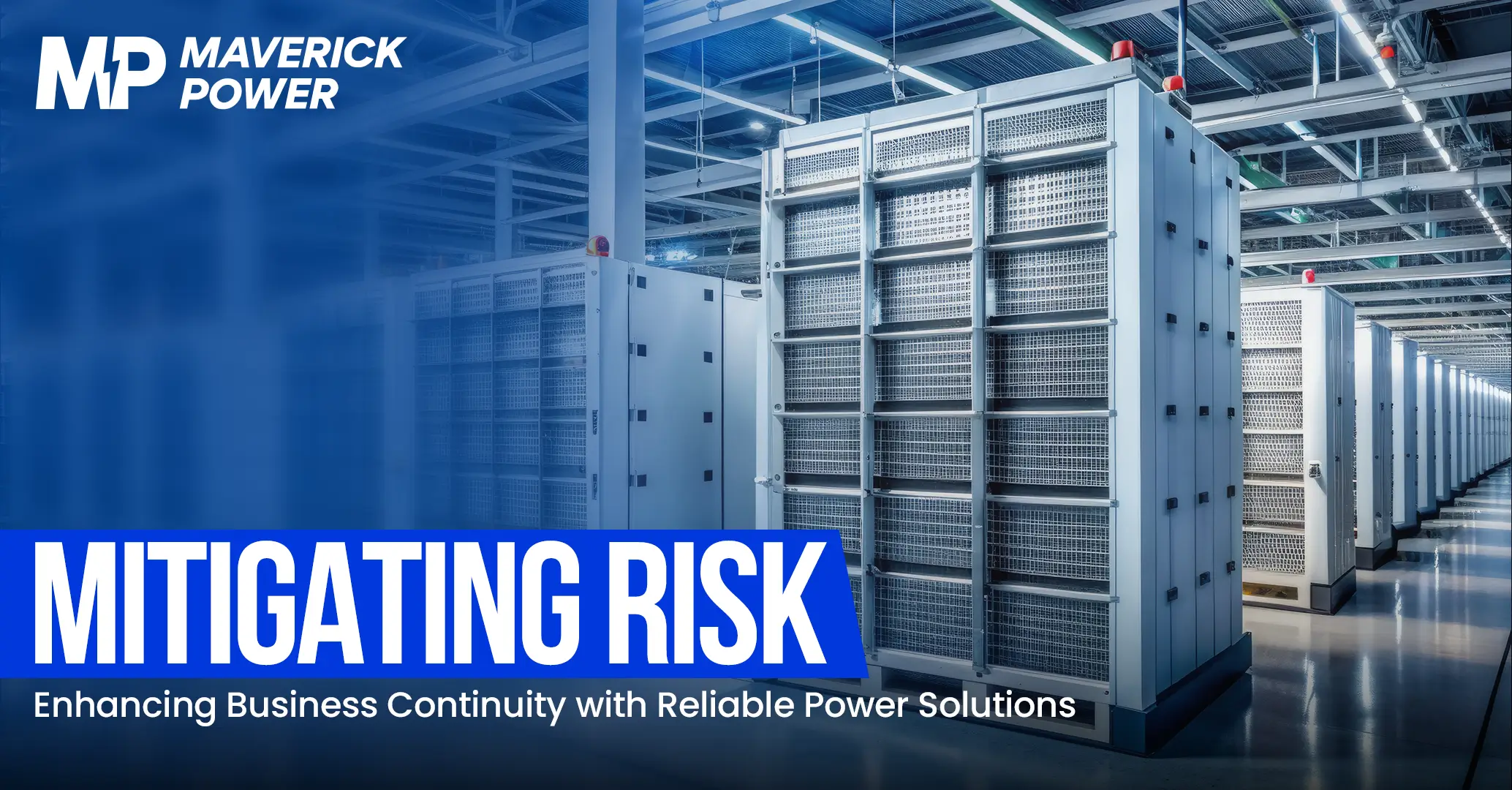In today’s interconnected and technology-driven business landscape, power isn’t just a utility—it’s the lifeline that keeps operations running. As companies increasingly rely on digital infrastructure and round-the-clock operations, the need for uninterrupted power has never been more critical. This blog explores how reliable power solutions are becoming the cornerstone of robust business continuity strategies, helping organizations mitigate risks and stay resilient in the face of unforeseen challenges.
The Critical Nature of Business Continuity
Business continuity refers to the processes and procedures an organization implements to ensure that critical functions can continue during and after a disaster. It encompasses everything from disaster recovery plans to maintaining operational capacity during unforeseen events. For mission-critical operations, business continuity is non-negotiable. Without it, companies risk severe operational, financial, and reputational damage.
Potential Consequences
The potential consequences of power disruptions on business operations are significant. From halting production lines in manufacturing to losing critical data in financial services, the impacts can be devastating. Even a short-term power outage can result in lost revenue, decreased productivity, and compromised safety. In healthcare, power disruptions can literally be a matter of life and death, affecting everything from life support systems to critical data storage.
Identifying Key Risks
Natural Disasters
Natural disasters such as hurricanes, earthquakes, and floods are significant threats to power continuity. These events can cause widespread damage to infrastructure, resulting in prolonged power outages. For instance, Hurricane Sandy in 2012 left millions without power for days, crippling businesses and disrupting services across the eastern United States.
Human-made Disruptions
Human-made disruptions, including cyber-attacks and terrorism, pose substantial risks to power systems. Cyber-attacks on power grids are becoming increasingly common and sophisticated, capable of causing widespread outages and significant damage to businesses. Terrorist attacks on infrastructure can also lead to prolonged power disruptions, threatening both public safety and business operations.
Technical Failures
Technical failures, such as equipment malfunctions and grid overloads, are common causes of power disruptions. Aging infrastructure, inadequate maintenance, and increased demand can lead to system failures that disrupt power supply. These technical issues highlight the need for robust and reliable power solutions to maintain business continuity.
Reliable Power Solutions for Risk Mitigation
UPS Systems
Uninterruptible Power Supply (UPS) systems are essential for ensuring continuous power during outages. These systems provide immediate backup power, allowing critical systems to remain operational until generators can take over or power is restored. UPS systems are vital for maintaining data integrity and preventing hardware damage during power disruptions.
Backup Generators
Backup generators are a crucial component of any reliable power solution. They provide an alternative power source when the primary supply fails, ensuring that essential operations can continue. Best practices for backup generator use include regular maintenance, adequate fuel supply, and proper load management to prevent overloads and ensure reliable operation when needed.
Redundant Power Systems
Redundancy in power systems is critical to preventing single points of failure. Redundant systems, including multiple power sources and backup equipment, ensure that power supply remains uninterrupted even if one component fails. This approach is particularly important for mission-critical operations where power continuity is paramount.
Practical Use Cases
Healthcare
In healthcare, maintaining operations during power failures is crucial. Hospitals and medical facilities rely on continuous power to operate life-saving equipment and maintain critical patient data. Reliable power solutions, including UPS systems and backup generators, ensure that healthcare providers can continue to deliver high-quality care even during power disruptions.
Financial Services
Banks and financial institutions are heavily reliant on continuous power to protect data integrity and maintain customer services. Power disruptions can lead to data loss, transaction errors, and security breaches. Implementing robust power solutions, such as redundant systems and backup generators, helps these institutions safeguard their operations and maintain customer trust.
Telecommunications
Telecommunications companies must keep communication lines open during crises to support emergency services and public communication. Reliable power solutions, including UPS systems and backup generators, enable telecom providers to maintain service continuity during power outages, ensuring that critical communication channels remain available.
Reliable power solutions are essential for mitigating risks and ensuring business continuity across various industries. By understanding the critical nature of business continuity, identifying key risks, and implementing robust power solutions, businesses can safeguard their operations and maintain resilience in the face of disruptions.
For those looking to enhance their business continuity with reliable power solutions, contact Maverick Power today to protect your business against power disruptions and ensure a brighter, more reliable future.
